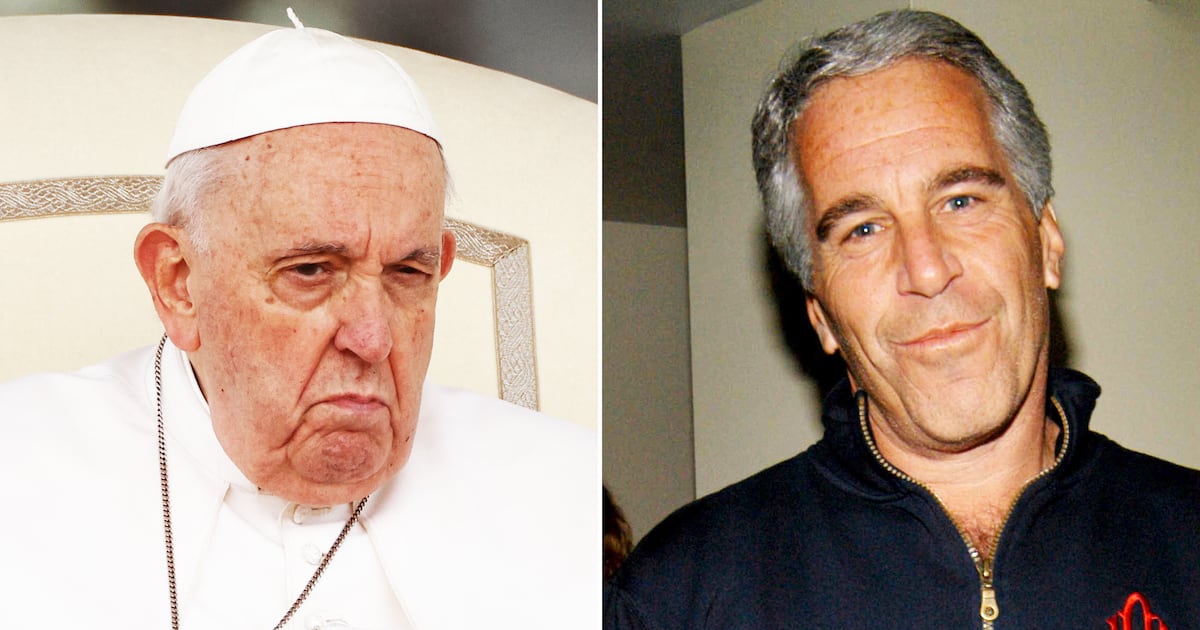Kim Davis and her various supporters are adamant on one point: Her religious freedom has been stripped away. To them, her case is the first step toward putting good Christians in jails for their beliefs. Her refusal to issue marriage licenses to same-sex couples in Kentucky is, in their view, a matter of faith with which the government has no right to intervene. They hang their collective hat on the First Amendment’s guarantee of freedom of religion—without articulating, let alone differentiating, the two co-equal components to that very freedom.
So let us go back to high-school civics. When discussing the religious freedom portion of the First Amendment, there are not one but two clauses we must consider. The commonly understood and cited part, and the one Ms. Davis trumpets, is the Freedom to Worship guarantee. Under that clause, the government isn’t allowed to pass any law, or take any action, “prohibiting the free exercise” of religion. Simply put, the government can’t do anything to stop you or anyone else from worshipping God or Buddha or the Flying Spaghetti Monster, if that’s what your conscience or faith tells you. In Ms. Davis’s view, the government (via a federal court) has overstepped its power by forcing her to act against her religious beliefs, and therefore has trodden upon her right of free exercise.
This argument falls apart, however, once you take into account the other, less commonly understood clause. The “Establishment Clause” prohibits the government from aiding or assisting any religion, or religious viewpoint, over any others. This was a key point for the founders of our country, who were of diverse faiths and did not want a state religion, or even any state-endorsed religions. When people talk about “separation of church and state,” this is the part of the Constitution that embodies it. The separation has worked well over the past two and a quarter centuries; today, the Baptists have no more right to have their particular beliefs elevated over the Methodists, or the Druids for that matter, by any government official.
So what does the Establishment Clause have to do with Kim Davis? It’s actually rather straightforward. She is a government employee charged with performing a clerical task (issuing a marriage license). As an employee of the government, the moment she imposed her own personal religious beliefs (that only straight couples should be married), she raised an Establishment Clause problem. By insisting on applying God’s law (or at least her interpretation of it) over the civil law, she gave greater weight by the government to a particular religious viewpoint, namely her own brand of Christianity. This was a plain violation of the Establishment Clause.
That of course raises another question: If it is a violation, where do Ms. Davis’s rights to freedom of worship begin and end? The simplest way to think about this is to agree that all of us have a right to worship, but that right ends at the tips of our noses. That is, we have a right to our beliefs, but we don’t have the right to impose our views on other members of the public. Everyone’s perfectly free to worship as they please, but this freedom also includes not having other people’s beliefs interfere with our own participation in civil society.
This is even more important when we’re talking about government officials, such as public school educators, judges, or country clerks. Such individuals are expected to do their jobs no matter who is appearing before them or under their care. Imagine, for example, that a person of the Quaker faith took a job with the county and then refused to issue gun licenses on grounds it violated her faith. The easy answer here is that she would have no right to do so. If guns are legal in the county, then citizens have a right to apply, and she cannot use her personal beliefs to stop others from obtaining a license. In this example, gun owners and non-gun owners alike probably would tell her to go find another job where she could function without ethical or religious dilemma.
As a public official, it isn’t even clear Ms. Davis has the same rights as a private citizen to speak out let alone act in opposition to same-sex marriage as part of her official duties. As the conservative majority of the Supreme Court noted in the case of Garcetti v. Cebalos back in 2006, “[W]hen public employees make statements pursuant to their official duties, the employees are not speaking as citizens for First Amendment purposes, and the Constitution does not insulate their communications from employer discipline.” In other words, Ms. Davis, as an officer of the county, is subject to the Establishment Clause limitations, and precisely because she is a government employee, does not have the right to claim First Amendment protection either for her speech or for her actions based on her faith.
It is somewhat surprising that religious freedom advocates would choose this particular hill to defend, as any judge or constitutional law expert would easily conclude that her behavior violated Establishment Clause principles going back to the very founding of our nation. In so doing, these self-described advocates for religious liberty are in fact showing an alarming disregard and ignorance of some of the bedrock principles around the separation of church and state.
A much thornier question arises when private citizens assert they are being compelled to provide services for same-sex couples in violation of their personal belief systems (such as the infamous gay wedding cake example). That is a quandary for another day, one I’m sure will test the boundaries of the two religious freedom clauses. Ms. Davis’s case, on the other hand, is crystal clear to anyone who appreciates what “separation of church and state” really means. The vociferous defense of her behavior by some indeed suggests that they aren’t really very interested in maintaining this separation at all.






